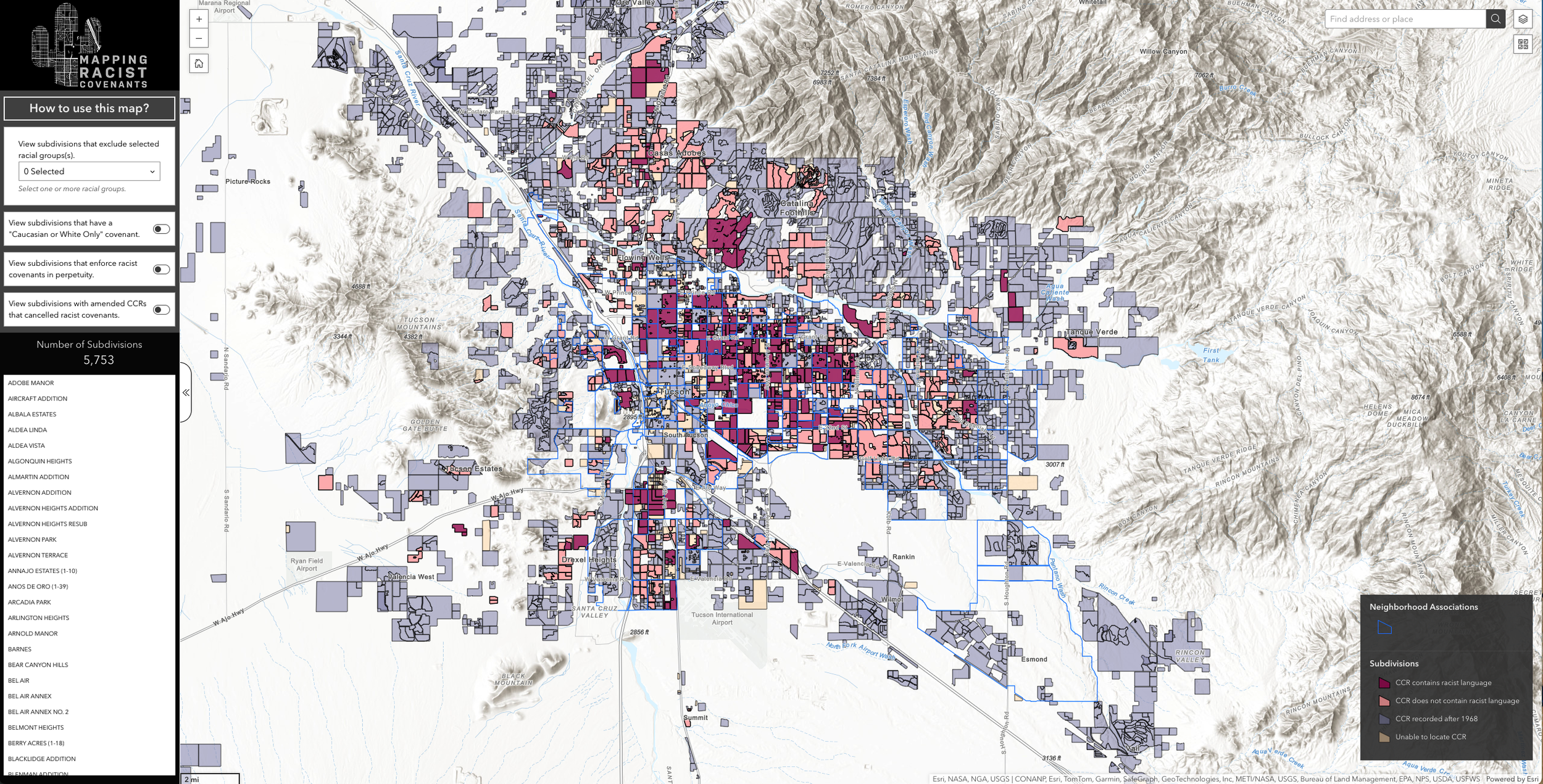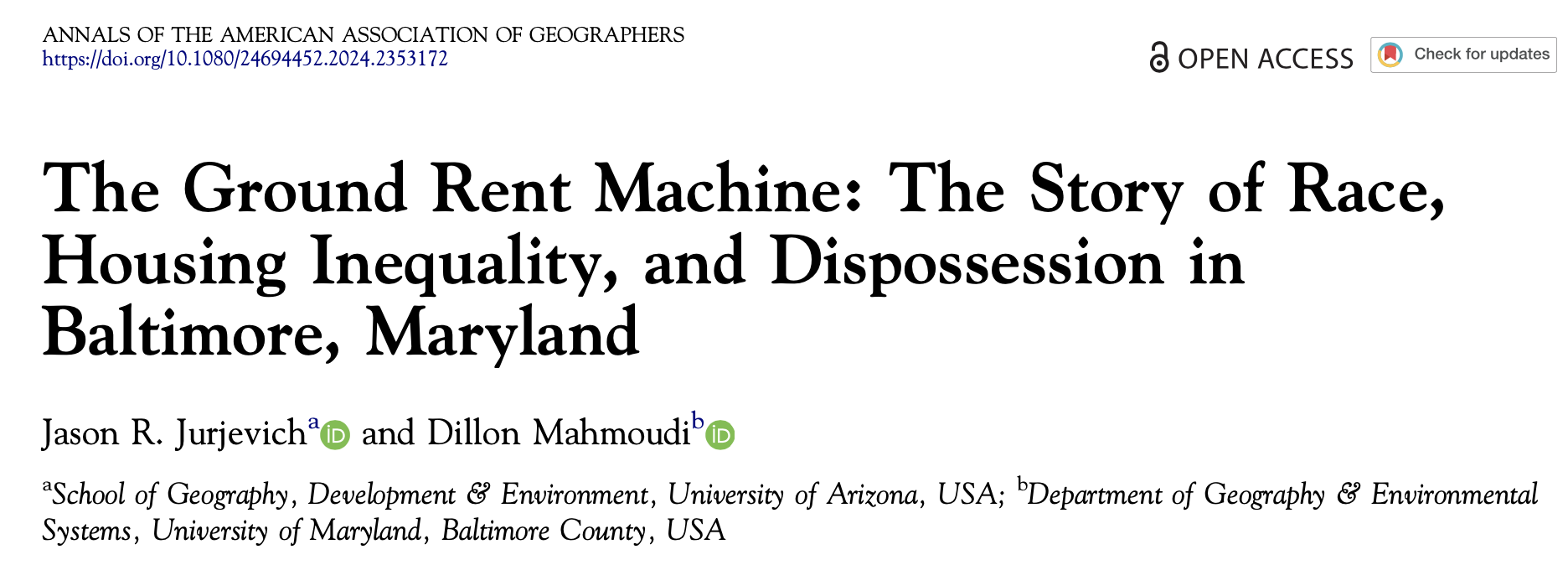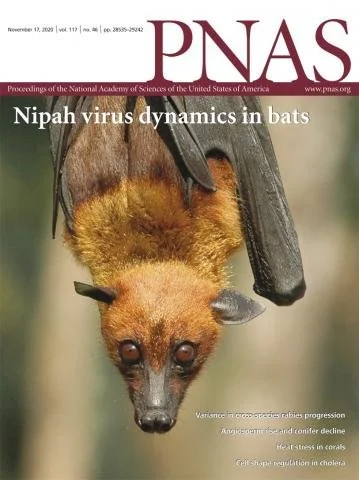Harness the power of geographic data to:

Jason Jurjevich, PhD
School of Geography, Development & Environment
Present
University of Arizona
2010
Ph.D. in Geography, University of Arizona
2005
MA in Geography, University of North Carolina at Charlotte
As a broadly trained human geographer, I use critical quantitative methods to expose social and economic inequality in cities. I have a particular interest in the census, migration, and housing, with recent work examining housing injustice in Baltimore and Tucson. Currently, I am an Assistant Professor in the School of Geography, Development & Environment at the University of Arizona.
Since 2010, my work has been cited in numerous media outlets, including National Public Radio (NPR), Univision, CityLab, Governing Magazine, New York Times Magazine, Atlantic Cities, and The Chronicle of Higher Education.
In 2018, I launched Census 20/20, a nationwide-focused project to foster community preparedness and inspire individual action to support a fair and accurate census in 2020.
In September 2022, I launched my most recent project, Mapping Racist Covenants. This project highlights the breadth of racist covenants, conditions, and restrictions (CCRs) across neighborhoods and subdivisions in Tucson between 1912 -1968 using interactive web-based mapping.

Articles, Datasets, Book Chapters, and Reports
Dataset
September 2025
Jason R. Jurjevich, Yoga Korgaonkar, Christine Kollen, Arden Holloway, and Liz Wilshin. “Data and Geographic Shapefiles for Mapping Racist Covenants in Tucson, AZ." University of Arizona Research Data Repository. DOI: 10.25422/azu.data.25447900
Work featured in Arizona Daily Star
Work featured in UA News
Research Article
March 2025
Jason R. Jurjevich, Katie Meehan, Nicholas M.J.W. Chun, and Greg Schrock. “Advancing Methods for Comparative Urban Research: A City-Centric Protocol and Longitudinal Dataset for US Metropolitan Statistical Areas.”
PLOS One. DOI: 10.1371/journal.pone.0316750
Research article
December 2024
Katie Meehan, Jason R. Jurjevich, Lucy Everitt, Nicholas M.J.W. Chun, and Justin Sherrill. “Water Access Worsens for Low-Income Households of Color in Elite US Metros.” Nature Cities. DOI: 10.1038/s44284-024-00180-z
Research article
June 2024
Jason R. Jurjevich and Dillon Mahmoudi. “The Ground Rent Machine: The Story of Race, Housing Inequality, and Dispossession in Baltimore, Maryland.” Annals of the American Association of Geographers.
DOI: 10.1080/24694452.2024.2353172
Overview
Our research documents emerging trends and persistent gaps in urban water access over the past 20 years, before and after the Great Recession of 2008. Focusing on 15 major metropolitan areas and drawing on analysis of nearly two decades (2000-2017) of Census data, we identify racialized disparities in household water access, compare trends between cities and over time, and point to worsening conditions for urban dwellers, especially renters.
Comprehensive report
September 2021
Katie Meehan, Jason R. Jurjevich, Alison Griswold, Nicholas M.J.W. Chun, and Justin Sherrill. “Plumbing Poverty in US Cities: A Report on Gaps and Trends in Household Water Access, 2000 to 2017.” DOI: 10.18742/pub01-601
Work featured in The Guardian
Work featured in the Milwaukee Journal-Sentinel
Work highlighted on Wisconsin Public Radio (WPR)
Overview
In this study, we explain the drivers of infrastructural inequality in the 50 largest metropolitan areas. Our analysis reveals spatial and sociodemographic patterns of racialized, class-based, and housing disparities that characterize plumbing poverty.
Research Article
November 2020
Katie Meehan, Jason R. Jurjevich, Nicholas M.J.W. Chun, and Justin Sherrill. “Geographies of Insecure Water Access and the Housing-Water Nexus in US CIties.” DOI: 10.1073/pnas.2007361117
Work featured in The Guardian
Work featured in CNN
Overview
In this article we explore the understudied socio‐environmental contradiction where the actual environmental outcomes of neighborhood transformation may not be what we expect.
Research Article
March 2019
Jennifer L. Rice, Daniel Aldana Cohen, Joshua Long, and Jason R. Jurjevich. “Contradictions of the Climate-Friendly City: New Perspectives on Eco-Gentrification and Housing Justice.” IJURR: International Journal of Urban and Regional Research. DOI: 10.1111/1468-2427.12740
Overview
Many planners do not understand the statistical uncertainty in ACS data, find it difficult to communicate statistical uncertainty to stakeholders, and avoid reporting MOEs altogether. These practices may conflict with planners’ ethical obligations under the AICP Code of Ethics to disclose information in a clear and direct way.
Research Article
April 2018
Jason R. Jurjevich, Amy L. Griffin, Seth E. Spielman, David C. Folch, Meg Merrick, and Nicholas N. Nagle. “Navigating Statistical Uncertainty: How Urban and Regional Planners Understand and Work with American Community Survey (ACS) Data.” Journal of the American Planning Association. DOI: 10.1080/01944363.2018.1440182
*Selected by JAPA editors as a finalist for 2018 Paper of the Year.
Census 2020 Research
Census 20/20
2021. Effects of Differential Privacy Among Communities of Color in Southern Arizona
Overview
Certain populations require more data distortion to guarantee the same level of privacy compared to larger populations. Given this situation, we explore two questions in this study: 1) how reliable are differentially-private data for Arizonans of color? 2) to what extent does differential privacy introduce unequal data distortion among Arizonans of color at sub-county geographies?
We explored the effects of differential privacy, a new tool of disclosure avoidance in census data, for communities of color in Southern Arizona.
Overview
Using past census household non-response rates as a proxy for the HTC population, this report provides detailed range projections of Arizona’s Census 2020 HTC population, by county, under three scenarios.
Arizona is traditionally a state with a high Hard-to-Count (HTC) population. In Census 2010, only 77.6% of Arizona households mailed back their census form, ranking Arizona’s census participation 38th across the 50 states and Washington, DC.
Overview
State and local governments, as well as philanthropic organizations, share a responsibility to secure funding that supports efforts that will fairly and accurately count all Oregonians, including individuals in hard-to-count (HTC) communities.
We found that funding for Census 2020 in Oregon required raising at least $7.0 to $8.4 million.











